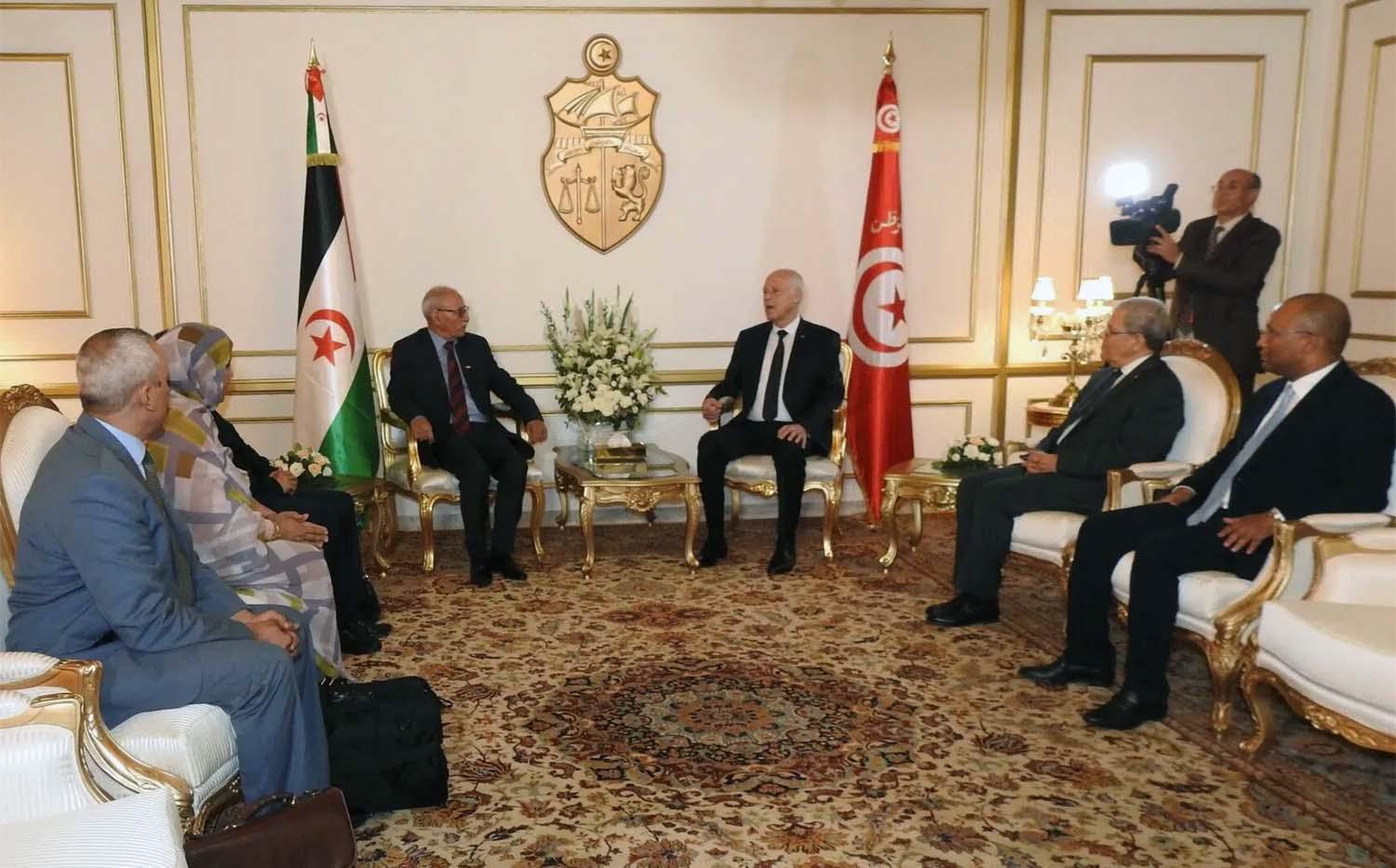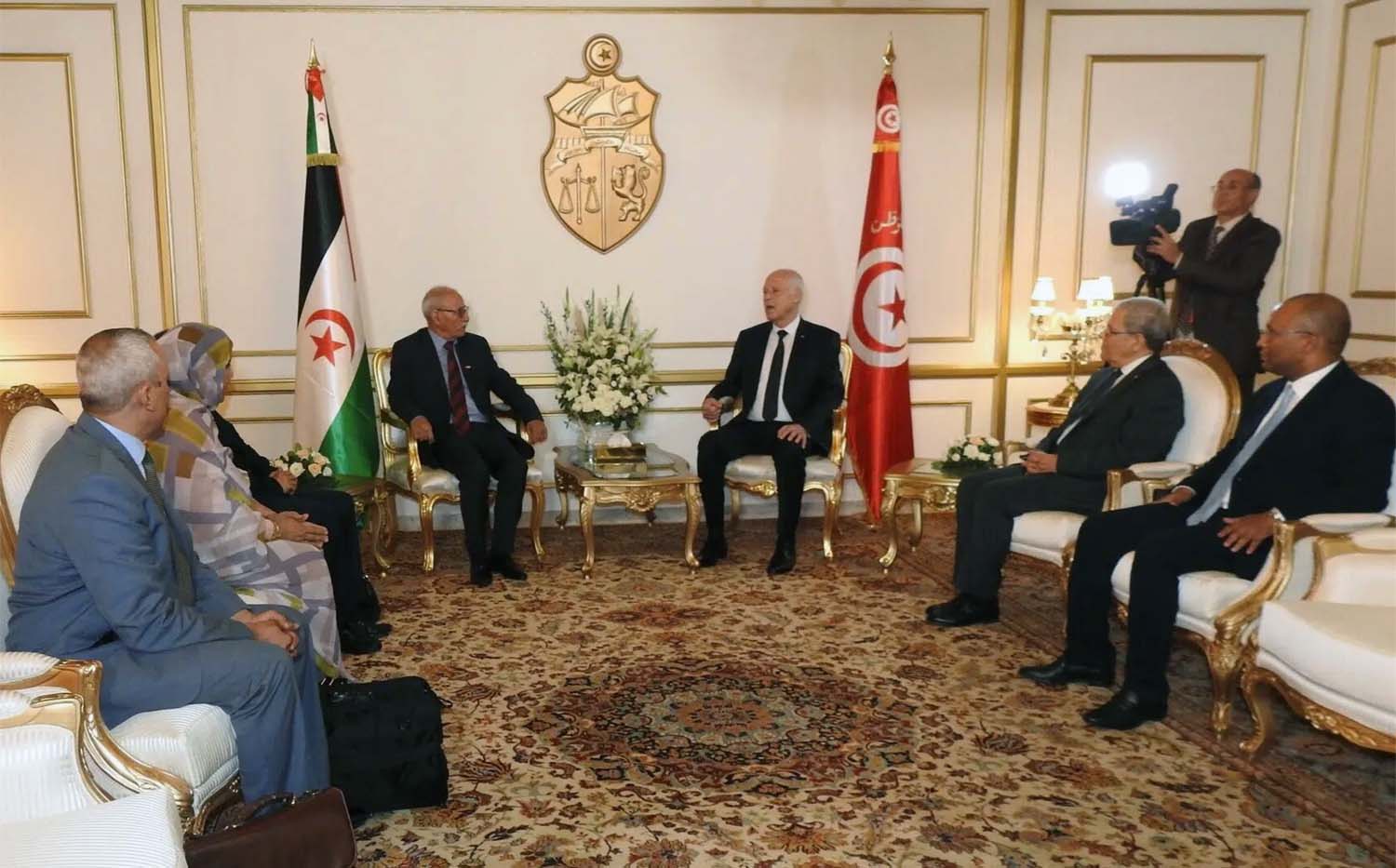Tunisia loses Morocco’s exceptional friendship without gaining anything
The file of the Maghreb Arab Union countries belongs to the category of special files. Everything that concerns the countries of the Union, should be in the offices of the heads of state, and not in the Ministry of Foreign Affairs, or any other sovereign institution. The special relationship between Britain and the United States is a file between the British Prime Minister's office and the White House. The special relations between Germany and France are a file exclusively with the Chancellery and the Elysee.
Many of the mechanisms of the Gulf Cooperation Council were still working despite the depth of the dispute between its member states, and then things came to a settlement. The file of the countries of the Maghreb Union should not deviate from being looked at in this way no matter what the problems of ties between the states may be.
Tunisia hosted August 27-28 the eighth Tokyo International Conference on African Development (TICAD) sponsored by Japan. The story presented by the Tunisian Foreign Ministry about the way in which invitations were sent to attend the summit contradicted with the protocols for hosting summits in the world. The African Union Commission cannot extend invitations on behalf of Tunisia, because Tunisia is the host country. The message of the Japanese mission to the African Union, which went viral, is clear and does not bear controversy, as the invitations were limited to Japanese Prime Minister Fumio Kishida and Tunisian President Kais Saied.
As long as the matter is at the top level, that is, at the level of leaders, this matter should have been in the Carthage Palace and not under the coordination of an ambassador from the ambassadors residing in the Tunisian Foreign Ministry.
How can the invitation of the Polisario Front, which Tunisia does not recognize in any form or detail, pass and poison relations with Morocco, the founding of the Maghreb Arab Union? Where was the presidency in extending the invitation and what was its main purpose, not to mention the Tunisian interest in providing a legal status to the Algerian-backed separatist front in its last days after it became clear that the recognition of the great powers globally and in the Middle East the Moroccanness of the Sahara is a reality? Spain's support for the Moroccan solution to the Sahara crisis is the latest, and most important, step in settling a pending file that Algeria has been moving more than any leader who ruled the Polisario Front.
Among the explanations for the call to please Algeria is that Tunisia is going through a difficult economic situation and that it is compelled to respond to Algeria's political pressures. Likewise, we must imagine an explicit Algerian request to receive Ibrahim Ghali, the leader of the so-called Polisario Front, as if he were a head of state. We do not know if this happened, but if it did, it would set a dangerous precedent for the frameworks of the relationship between Tunisia and Algeria.
Today, Algeria asks for an expensive reception, so what will it ask for tomorrow or the day after? Then what does Algeria threaten Tunisia with? With gas? The Algerian economic logic is puzzling, because Algeria took the initiative to cut off the gas pipeline that passes through Morocco to deprive the latter of gas and revenues from the flow of its gas to Spain via the North African kingdom.
The justification given will not even be acceptable for filing an accusation at a police station in a small village anywhere in the world: an accusation that Morocco caused a fire in an Algerian forest. The forests of the Mediterranean sea, including those in Morocco, were burning due to the heatwave. A year later, we did not hear about the results of any investigation into what happened in that Algerian forest, and now the fires are burning and killing dozens in the east of Algeria, close to the Tunisian border. Can a country like Tunisia succumb to pressure from a sister country that is blackmailing its neighbours with the gas file and its flow through Morocco’s lands? The saying that Algeria takes care of the brothers in Tunisia falls when asking the Algerians themselves how their state takes care of them and why they are always on the streets protesting against its economic policies.
Politically motivated economic blackmail exists. The Russian example with Europe is present, although the comparison is not very correct, as there is a raging war between Russia and the West on the Ukrainian territory. Moscow considers gas a weapon in its war against Europe which sends money and weapons to Ukraine. But what is the war that Algeria is fighting to cut off gas from Morocco and to scare Tunisia with similar consequences?
Algeria has always said that it is not a party to the Sahara issue, and it is one of a series of political jokes that have been circulating since the Spaniards left the Sahara in the seventies. The Polisario is, at best, an organization implementing an Algerian political agenda controlled by the military and echoed by successive Algerian presidents and ministers. The organization is an eroding legacy of the effects of the Cold War and the remnants of a regional policy of hostility practiced by Algeria against Morocco without clear justifications. Tunisian President Kais Saied surely knows these basic facts.
Suppose for the sake of argument that the Tunisian president coming from the ranks of university lecturing has a general knowledge of the sensitivity of the Sahara issue. We do not know exactly how many "Sahrawis" met with the president during his academic career or after assuming the presidency. They will be counted, as far as possible, a handful of Sahrawis.
Saied's concerns are national, as he has expressed many times. He never suggested that he was interested in or preoccupied with a Polisario-type issue. But any ambiguity in his mind about Morocco's position on the Sahara issue must have dissipated after Moroccan King Mohammed VI said clearly that his country’s ties with countries are passing through the prism of their position on the Sahara. There is absolutely no ambiguity in this.
The loyal political advisor in the Carthage Palace should have rushed to the president's office to warn him that the relationship between Morocco and Tunisia would be at stake if Tunisia took the initiative and received Ghali, whatever the form of this reception, and whatever the nature of the pressures that Tunisia was subjected to from the Algerian neighbour to accept his reception.
We are in an ambiguous position: Either an invitation passed without sufficient diplomatic scrutiny or a response to Algerian pressure whose beginning is this and whose end will not be reached. In both cases, Tunisia lost an exceptional Moroccan friendship without gaining anything.
Back to the file of the Maghreb Arab Union, a simple review of the history of the Union shows that what was not achieved in it was for political reasons, particularly the Polisario issue and the stance against it. It is impossible to imagine hostility between the Moroccan and Tunisian peoples. After a while, the two countries will find a settlement that will turn the page on Ghali's visit. It happened that countries such as Spain and Germany misjudged Morocco's sensitivity to the Sahara issue. Then those countries quickly retracted their positions, and now the Moroccan relations with them are moving for the better.
In the midst of preparations for the TICAD summit, the invitations file may have passed through non-expert hands, and we ended up with a grave diplomatic mistake. There is still plenty of room for Tunisia to reconsider its position and to correct a situation that should not have happened in the first place.
Dr Haitham El-Zobaidi is the executive editor of Al Arab Publishing Group







